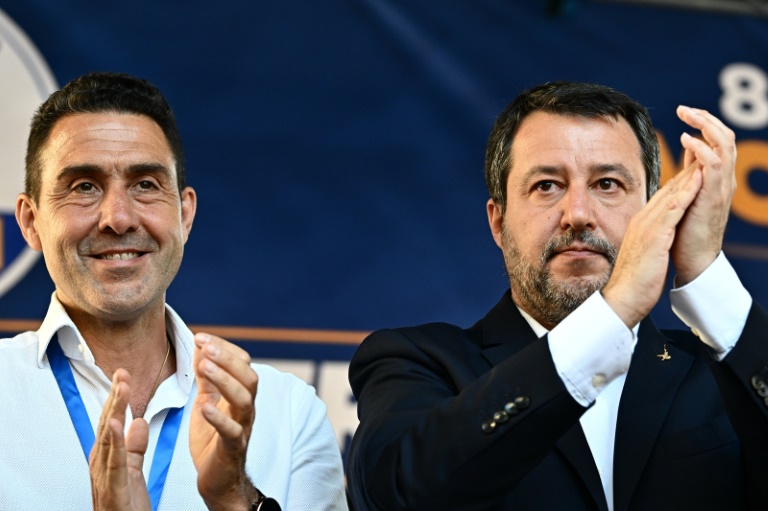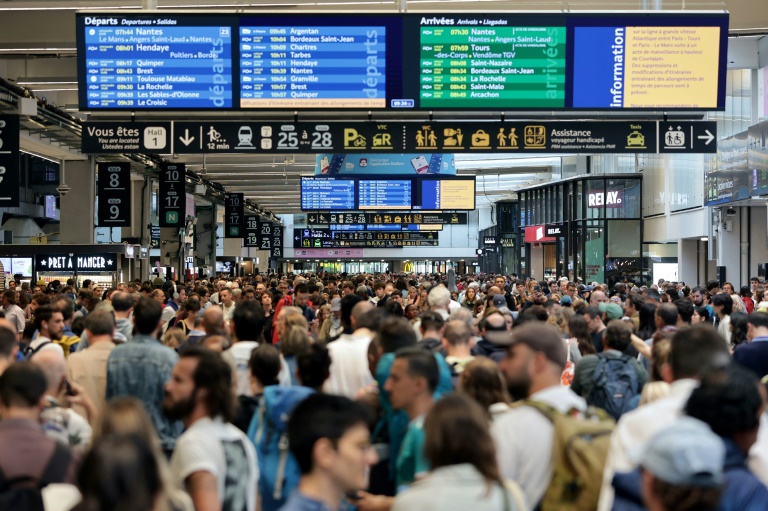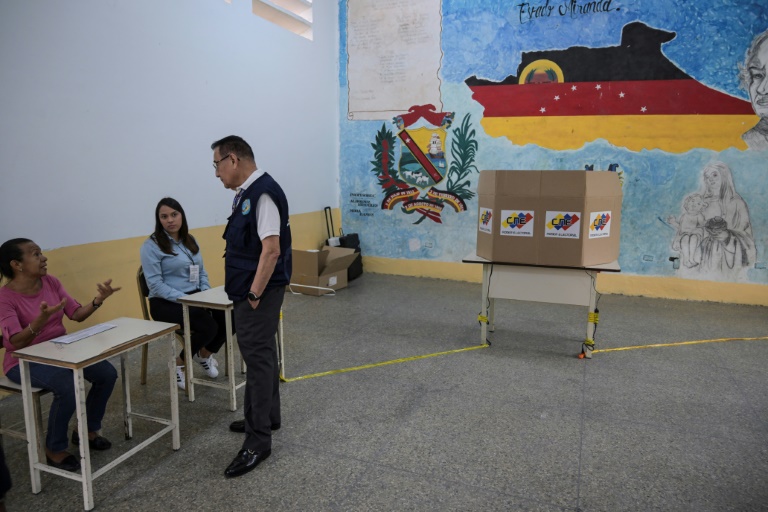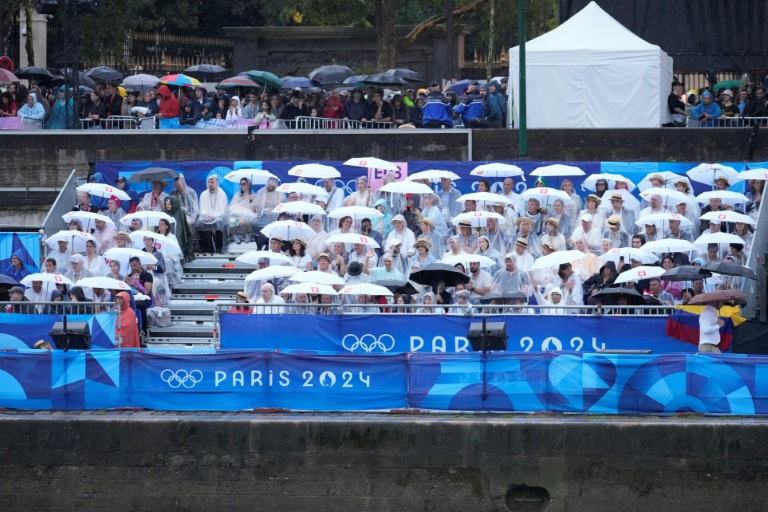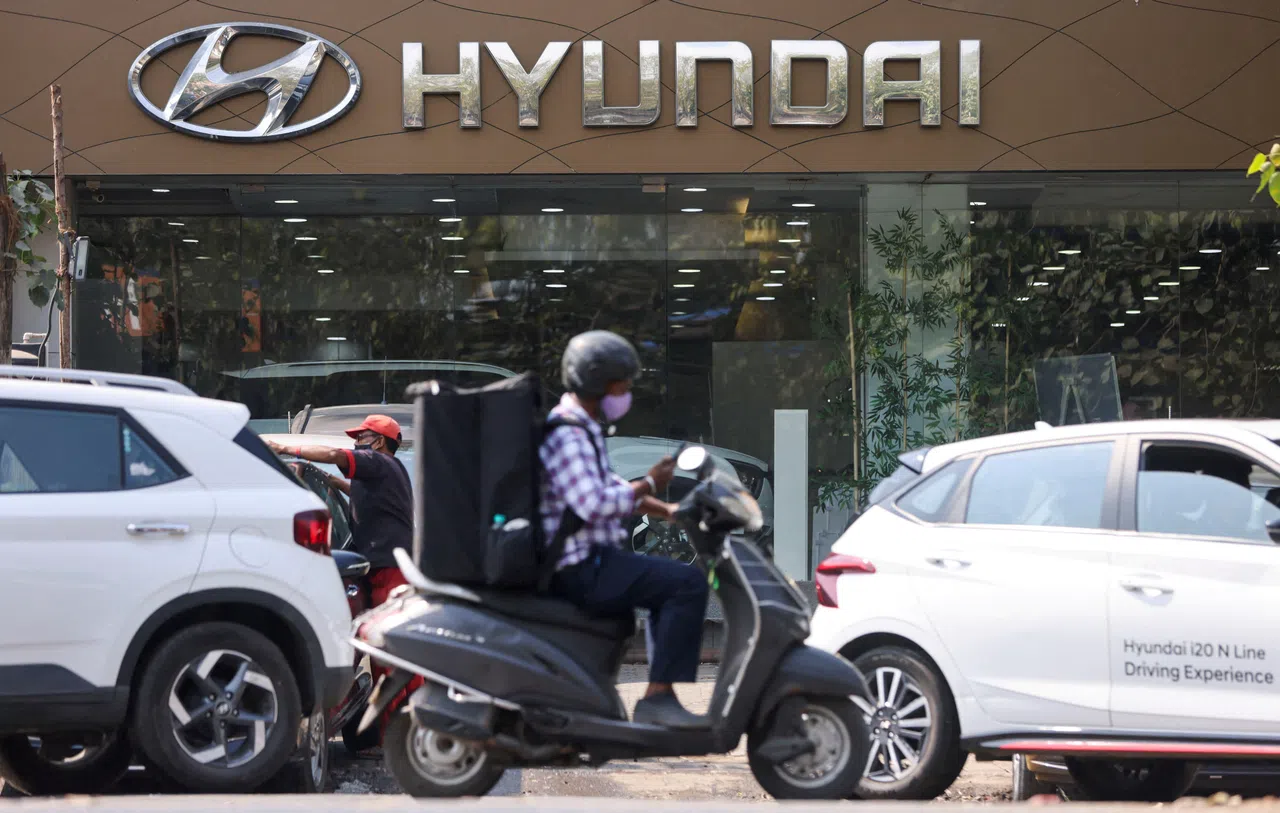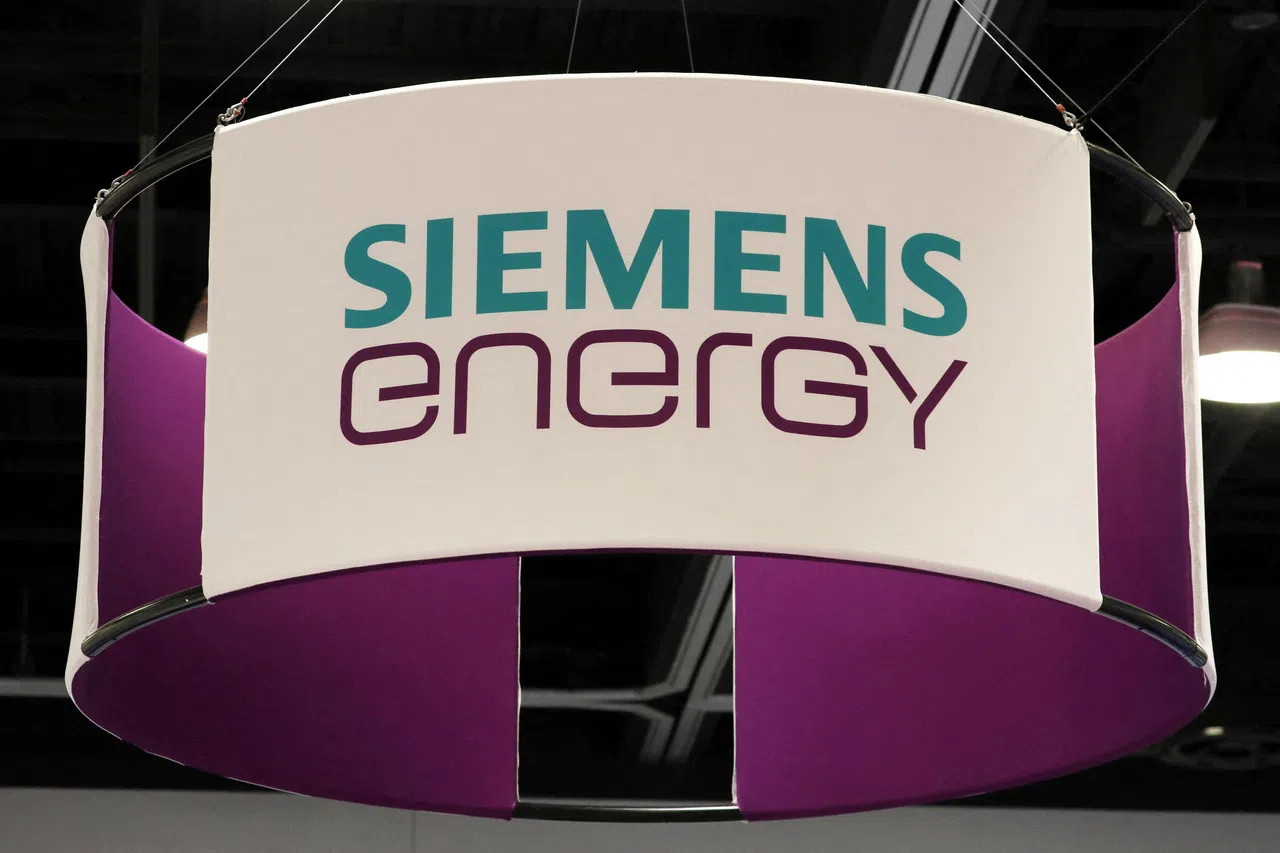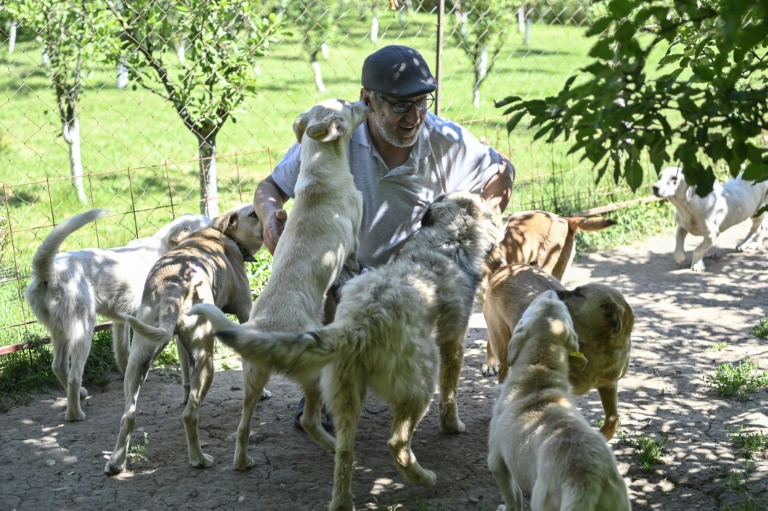Italy’s rabble-rousing Matteo Salvini has failed to win back mass support from far-right voters in the European Parliament elections after an erratic campaign marked by a reactionary general and poor-quality AI.
Deputy Prime Minister Salvini’s anti-immigrant League, a junior member in the coalition government, won just nine percent, with over 99.5 percent of the vote counted Monday morning.
“We are alive and kicking,” Salvini said, insisting that “as far as the government make-up is concerned, nothing changes”.
But the 51-year-old populist now risks a leadership challenge.
Salvini had been seeking to woo voters away from his ally and main rival, far-right Prime Minister Giorgia Meloni, whose Brothers of Italy won 28.8 percent.
While Meloni presented herself as a respectable international leader with the power to change Europe from within, Salvini went after the protest vote under the slogan “More Italy, Less Europe”.
He picked army general Roberto Vannacci to be the League’s star candidate, despite resistance from some high-ranking party members including founder Umberto Bossi, who instead voted for the right-wing Forza Italia party of the late populist leader Silvio Berlusconi.
Vannacci shot to fame at the start of this year after publishing a book considered offensive to gays, women and blacks.
The general, 55, was suspended by Italy’s defence ministry in February and had his pay cut for breaching army neutrality with the book, in which he denounced the “dictatorship of minorities” and wrote that gay people were not “normal”.
Salvini saw Vannacci as catnip for the radical right and a way for the League to regain the visibility lost since Meloni’s stellar rise to power.
At the last European elections in 2019, the League won a commanding 34 percent, compared to just 6.4 percent for Brothers of Italy.
Three years later, when Italians went to the polls in the national general election, the tables had turned.
While the League won just 8.9 percent, Brothers of Italy took 26 percent and a triumphant Meloni formed a coalition government with Salvini’s League and Forza Italia.
Numerous electors who voted for the League in 2019 backed Brothers of Italy in 2022 — and Salvini, whose party leadership was now in doubt, wanted them back.
As a member of the same governing coalition, he could not attack Meloni directly.
Instead, he banked on some of the voters usurped in 2022 being put off since then by her rapprochement with Brussels and her more moderate stance since becoming premier.
Salvini mixed anti-EU rhetoric with attempts to establish the League as the natural ally for the European radical right.
He railed on social media against “follies” such as EU environmental policies and took aim at immigrants and “woke” behaviour.
His posts featured AI-generated images, including a bearded pregnant man, a woman eating EU-mandated insects — rather than hearty Italian fare — and Muslims burning the “Divine Comedy” by the poet Dante Alighieri.
Another slammed “surreal eco-rules wanted by Brussels” above a picture of a man attempting to drink from a water bottle but getting his nose squashed by the cap, in reference to a new EU law requiring that plastic caps remain attached after opening.
The post went viral, with rival politician Carlo Calenda posting a video showing Salvini how drinking from a bottle could be painless.
Vannacci was elected MEP this weekend with just over half a million votes, but he failed to be the catalyst Salvini hoped for.
“Everything he has done is wrong,” in particular by betting on Vannacci, who is “very radical, very extreme”, Daniele Albertazzi, co-director at the Centre for Britain and Europe, a think-tank, told AFP.
“Voters have stuck with Meloni because she’s credible. (Salvini) doesn’t seem to have won any voters from Brothers of Italy and seems to have alienated his own,” he said.
“I would be surprised if he was not challenged (as party leader), because he is bringing this party down”, he said. “I think he has completely lost it”.

